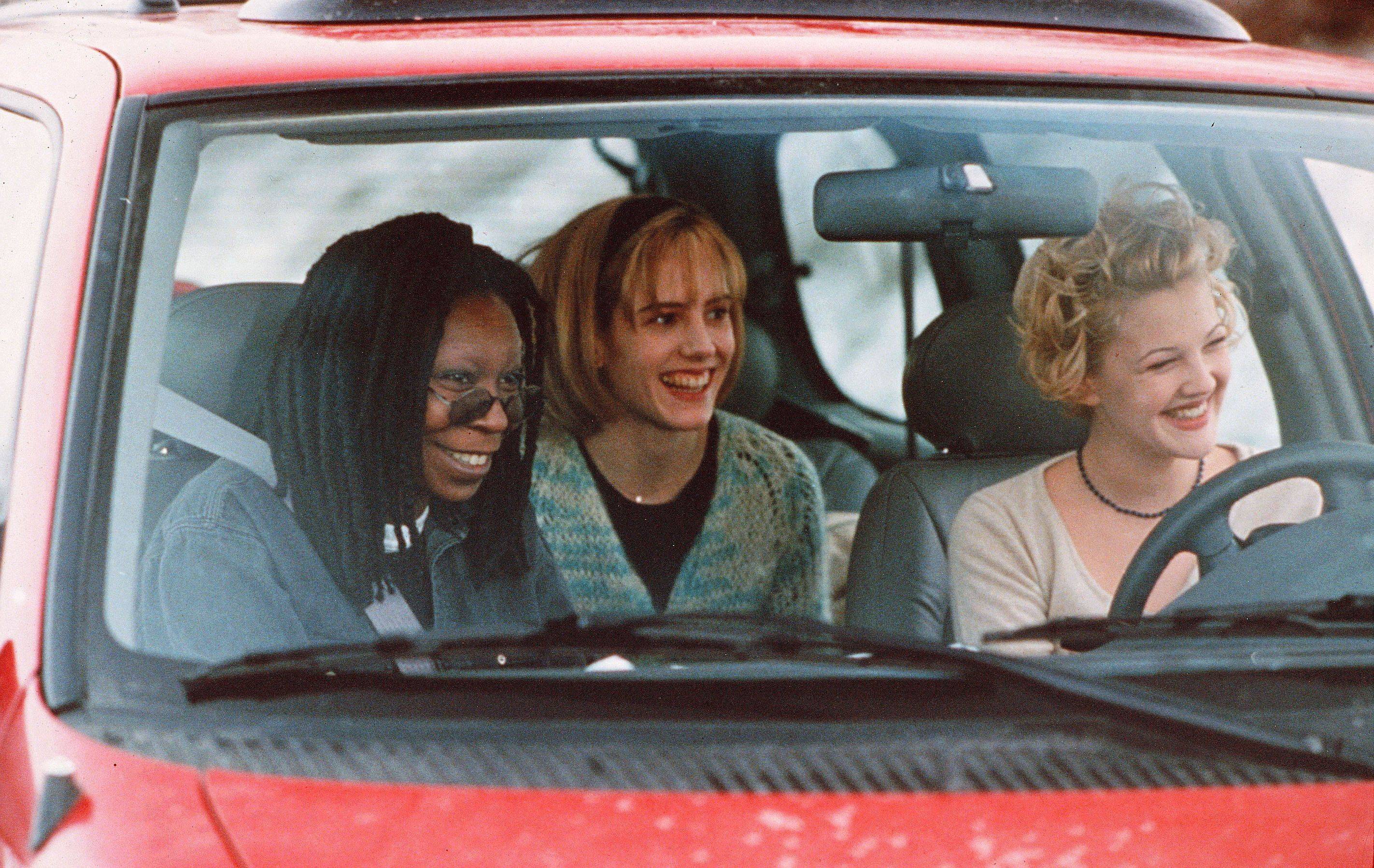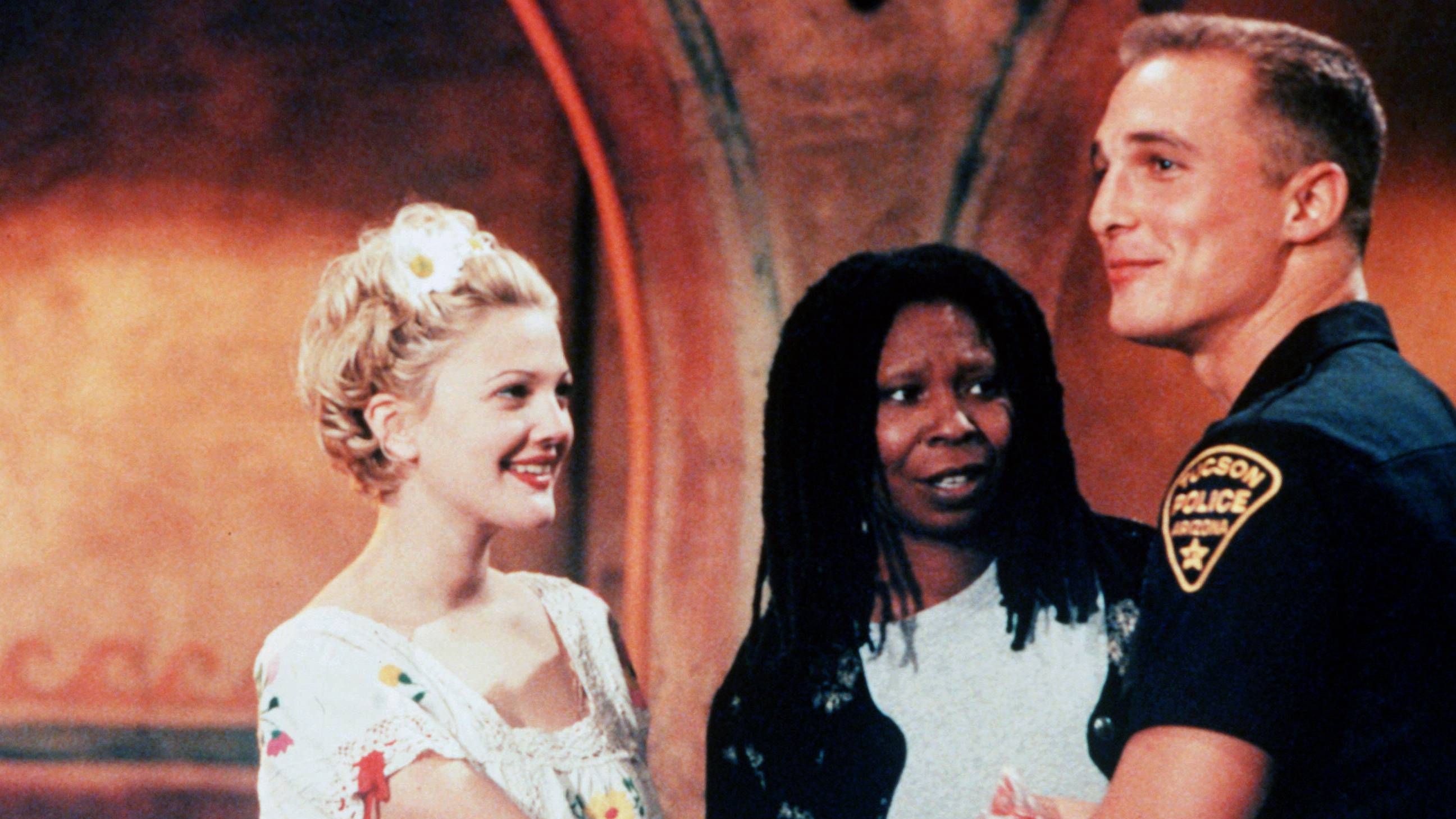
The world first became aware of HIV/AIDS in the early 1980s and, while movies on the subject started to appear just a few years later, it wasn’t until 1993 that what is regarded as the ground breaker on the subject arrived. Philadelphia, the story of a gay lawyer who was fired for contracting the virus, also opened the door for movies which took a wider view, featuring women as well as men and those who found themselves suffering from the condition for various reasons.
They didn’t get the same attention as Jonathan Demme’s Oscar winner, but one of them arrives today [Saturday, June 7] on Netflix. And, while Boys On The Side (1995) sounds like just another road movie, its approach to its subject is close to revolutionary.

After splitting up with her girlfriend, New York nightclub singer Jane (Whoopi Goldberg), needs to make a clean break and answers a personal ad from Robin (Mary-Louise Parker), a real estate agent who is HIV positive. She’s looking for a travel partner for a cross-country journey and on their way, they stop at Pittsburgh to pick up Robin’s friend Holly (Drew Barrymore), who, having found she’s pregnant, is desperate to escape an abusive relationship.
They’re three very distinct personalities, all trying to cope with what life has thrown at them, but they need to overcome their differences to help and support each other.
The final film from veteran director Herbert Ross, Boys On The Side stands alone among his portfolio of dramas and comedies, many of which concentrated on women’s stories. The Turning Point (1977) was set in the world of ballet and earned no less than 11 Oscar nominations but, although it produced no trophies, it proved to be a springboard for Ross to the likes of the Neil Simon comedy California Suite (1978), Kevin Bacon’s breakthrough movie, Footloose (1984), and star-studded tearjerker Steel Magnolias (1989), all must-sees then and now.
None of them touched on, let alone explored in any depth, the big social issues of the day but, for this last movie, the director used his customary emotional style to take a closer look at what was then a controversial subject and one regarded as outside most people’s experiences.
With each of the three women facing major life changes, it’s easy to describe it as being emotionally manipulative but, in truth, that's an exaggeration. If it's guilty of anything, it's of wearing its heart on its sleeve, bringing equal measures of laughter and tears to all of its themes and characters. It is, however, Mary-Louise Parker’s Robin who is the beating heart of the film as she increasingly struggles with the physical and mental effects of her condition. And it’s here that the film takes us into new territory with an honesty and compassion that was startling in its day and still comes as a surprise now.
It's revealed early on that Robin’s HIV status is the result of a straight relationship, immediately acknowledging that the condition isn’t confined to gay men. And it goes further, with its inference that it wasn’t her fault that she caught the virus, just as it wasn’t the fault of any of the people who contracted — and died from — AIDS during the crisis. Even more of an eye-opener is how Robin navigates life with HIV, especially when she finds herself attracted to bartender Alex (James Remar).
In the bedroom, she actively tries to stop things becoming more physical, but it emerges that not only does Alex know about her HIV status, he still wants to have sex with her. Even though they don’t go through with it, it’s a reminder to both Alex and us that somebody could still desire her, even if they knew she was HIV positive. For 1995, this was controversial and breaking new ground.
Other issues like drug taking and domestic abuse take second place in the film, but are still an essential part of the mix. Barrymore’s Holly has been used as a punch-bag by her drug-dealing boyfriend, regardless of her pregnancy, and his unexpected death makes all three women believe they’re responsible. Setting up home together in Arizona gives Holly some peace: she has her baby and finds love again, this time with a cop rejoicing in the name of Abe Lincoln – we kid you not! – played by no less than Matthew McConaughey.
He’s still pre-McConnaissance at this stage in his career and nearly 20 years away from his Oscar-winning performance as an AIDS sufferer in Dallas Buyers Club (2014). Goldberg’s Jane also finds love again, but is unable to escape the double whammy of prejudice that comes with being both black and gay.
While the film holds fewer surprises today than in 1995, the performances from the three leads consistently impress. Goldberg, Parker and Barrymore all convincingly capture the essence of their characters, turning what could have simply been stereotypes into living, breathing people that we cheer and weep for in a film that’s well ahead of its time. Tissues are mandatory.
Boys On The Side is on Netflix in the US and UK now.
Philadelphia is on Prime Video in the US and the UK.







